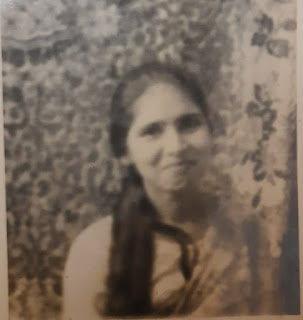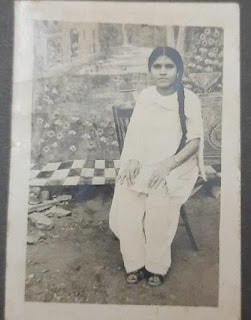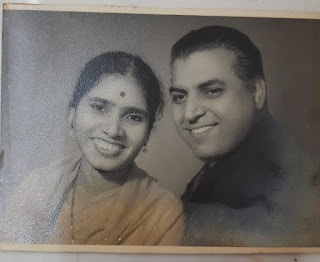From Hyderabad to India Ishwari in her younger days Ishwari in her younger days Ishwari Hassaram Idnani (married name: Maya Lekhraj Nebhani) was born on 29th April 1933 in Hyderabad, Sindh, British India. Her family's journey out of post-Partition Pakistan was long and arduous. Yet, Ishwari is grateful for everything she has today. Today, Ishwari calls Mumbai, India home and this is her story. Ishwari’s memories of Hyderabad, Sindh are sweet. When telling her story, she paints a picture of a loving, caring and close-knit community in Hyderabad. Ishwari completed six grades of Sindhi in Tikam Das Nanikram Girls School, and three grades in English. “We used to walk home from school with friends – there was no auto, cars or buses. Everyone walked everywhere all the time,” said Ishwari, recounting similar experiences to others who have shared their story here (see Bhagwan Sadhwani’s story). “Even when we were going to visit relatives, we would just walk over to their houses.” “We would do this often, visiting relatives – it was a community filled with love that we lived in,” Ishwari reminisces.  A photo of Ishwari taken post-Partition A photo of Ishwari taken post-Partition The community that Ishwari talks about is a stark contrast to how it would become post-partition. “We lived in fear of what would happen,” she said. “And this is why we left.” The long, arduous journey out of post-partition Pakistan began with her family taking a train from Hyderabad to Marwar Junction. They only packed all the important things but left everything else behind. A full eight days later, they boarded a bus to Ahmedabad where they lived at the station until the next leg of their journey. At the station, they were provided with food and water daily. Later, the Congress House chartered a bus and took those living at the station to a hall – there were about 15-20 families altogether staying there. Here too, they were provided with food and water rations by the government. The hall was to become home to Ishwari and her family for a full three months – until buses were chartered again and the family were moved to the Kalyan Camp (Kalyan is today known as Ulhas Nagar). This camp was essentially a set of military barracks, with 6-7 families living in each barrack. Slowly, the camp started filling up with more people coming over from different parts of Sindh such as Larkana, Shikarpur, Dadu, Tandao, Hyderabad and Karachi. Ishwari’s family knew that they needed to start rebuilding their lives again so her mother started stitching clothes, and about a year and a half after that, Ishwari too started learning how to stitch clothes to earn a living. As they were earning their own income and were self-reliant, government rations were stopped after one to two years of being distributed to them. Today, Ishwari – who goes by her married name, Maya Lekhraj Nebhani – lives in Bombay (Mumbai), India, where she has been living since she got married. Although she calls India home, she still feels a sense of nostalgia for Sindh. “I still remember Sindh now and then,” she says fondly. “But God has been great to us – we have been blessed with everything, and we’re happy.”
0 Comments
Your comment will be posted after it is approved.
Leave a Reply. |
AuthorKeen interest in Partition stories originating from the Province of Sindh. Archives
January 2022
Categories |

 RSS Feed
RSS Feed
